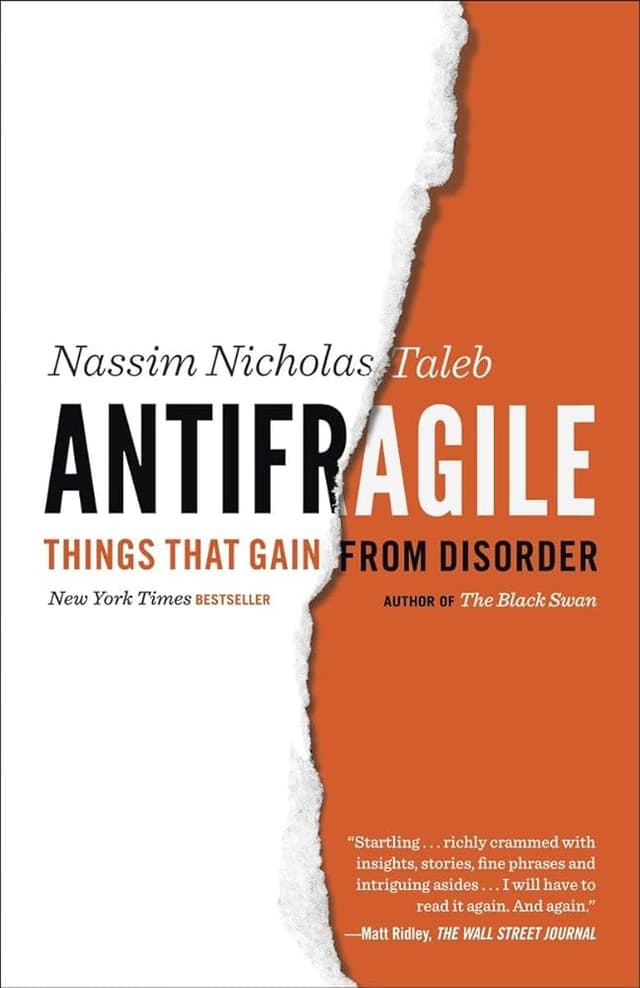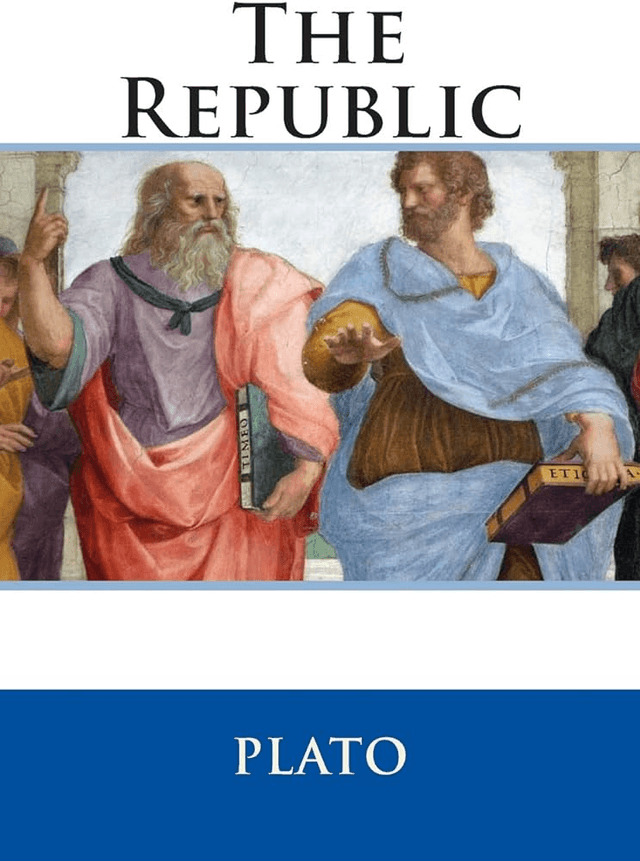Antifragile: Things That Gain from Disorder vs. The Republic
Antifragile: Things That Gain from Disorder
"Antifragile: Things That Gain from Disorder" by Nassim Nicholas Taleb is a groundbreaking exploration of systems and entities that thrive and grow stronger in the face of stress, volatility, and chaos. Taleb introduces the concept of "antifragility," which goes beyond resilience or robustness. Through a mix of philosophy, practical wisdom, and real-world examples, Taleb illustrates how embracing uncertainty and leveraging disorder can lead to success and innovation. This book is essential for anyone interested in risk management, personal development, and understanding how to benefit from uncertainty and change.
The Republic
The Republic is a Socratic dialogue, written by Plato around 380 BC, concerning the definition of justice, the order and character of the just city-state and the just man—for this reason, ancient readers used the name On Justice as an alternative title (not to be confused with the spurious dialogue also titled On Justice). The dramatic date of the dialogue has been much debated and though it might have taken place some time during the Peloponnesian War, "there would be jarring anachronisms if any of the candidate specific dates between 432 and 404 were assigned". It is Plato's best-known work and has proven to be one of the most intellectually and historically influential works of philosophy and political theory. In it, Socrates along with various Athenians and foreigners discuss the meaning of justice and examine whether or not the just man is happier than the unjust man by considering a series of different cities coming into existence "in speech", culminating in a city called Kallipo...

Reviews
Reviewed on 2/29/2024
I remember reading Antifragile when it first came out and it made a huge impression. It changed the way I think in plenty of subtle ways. I've been rereading Nassim Nicholas Taleb recently, starting with Black Swan. I really want to reread Antifragile this year too.
Reviews
| Item | Votes | Upvote |
|---|---|---|
| Innovative and original concepts | 1 | |
| Practical applications across various fields | 1 | |
| Engaging and thought-provoking narrative | 1 |
| Item | Votes | Upvote |
|---|---|---|
| Taleb's writing style can be polarizing | 1 |
| Item | Votes | Upvote |
|---|---|---|
| Has significantly shaped Western thought | 1 | |
| Timeless relevance | 1 |
| Item | Votes | Upvote |
|---|---|---|
| Dense and complex language | 1 | |
| Abstract concepts can be challenging to grasp | 1 |
Frequently Asked Questions
'Antifragile' offers practical applications for navigating uncertainty and volatility in contemporary society, making it highly relevant for personal development and risk management today. In contrast, 'The Republic' provides foundational philosophical insights into justice and governance that have shaped Western thought but may feel less directly applicable to everyday modern challenges. Therefore, if you're looking for actionable insights in a rapidly changing world, 'Antifragile' may be more applicable.
'Antifragile' introduces the concept of antifragility, which is a novel idea that challenges traditional notions of resilience and robustness. It provides innovative frameworks for understanding how systems can thrive under stress. On the other hand, 'The Republic' presents timeless philosophical discussions about justice and governance, but its ideas are rooted in ancient thought rather than presenting new concepts. Thus, 'Antifragile' is generally considered to present more innovative ideas.
'Antifragile' is often described as engaging and thought-provoking, though some readers find Taleb's style polarizing. In contrast, 'The Republic' is known for its dense and complex language, which can be challenging for many readers. Therefore, 'Antifragile' is typically seen as more accessible than 'The Republic'.
'The Republic' has had a profound and lasting impact on Western philosophy and political theory, influencing countless thinkers and political systems over centuries. While 'Antifragile' has introduced important concepts relevant to modern discussions on risk and uncertainty, its impact on philosophical thought is not as extensive as that of 'The Republic'. Thus, 'The Republic' is considered to have a more significant impact on philosophical thought.
'Antifragile: Things That Gain from Disorder' by Nassim Nicholas Taleb is a groundbreaking exploration of systems and entities that thrive and grow stronger in the face of stress, volatility, and chaos. Taleb introduces the concept of 'antifragility,' which goes beyond resilience or robustness. Through a mix of philosophy, practical wisdom, and real-world examples, Taleb illustrates how embracing uncertainty and leveraging disorder can lead to success and innovation. This book is essential for anyone interested in risk management, personal development, and understanding how to benefit from uncertainty and change.
Pros of 'Antifragile: Things That Gain from Disorder' include its innovative and original concepts, practical applications across various fields, and an engaging and thought-provoking narrative. However, a con noted by some readers is that Taleb's writing style can be polarizing.
Nassim Nicholas Taleb is a renowned scholar, statistician, and former trader known for his work on probability, uncertainty, and risk management. He is the author of several influential books, including 'The Black Swan,' 'Fooled by Randomness,' and 'Antifragile.' Taleb's work often focuses on the limits of knowledge and the impact of rare, unpredictable events.
'The Republic' is a Socratic dialogue written by Plato around 380 BC. It addresses the definition of justice and examines the order and character of the just city-state and the just man. The dialogue explores whether a just man is happier than an unjust man through discussions on various topics, including the theory of forms, the immortality of the soul, and the roles of philosophers and poets in society.
Pros of 'The Republic' include its significant influence on Western thought and its timeless relevance. However, the dialogue is known for its dense and complex language, and the abstract concepts can be challenging to grasp.
'The Republic' was written by the ancient Greek philosopher Plato.
'The Republic' is considered an influential work because it has significantly shaped Western philosophical and political thought. Its discussions on justice, the ideal state, and the role of philosophers have had a lasting impact on intellectual history.
Key themes in 'The Republic' include justice, the ideal state, the theory of forms, the immortality of the soul, and the roles of philosophers and poets in society.




















